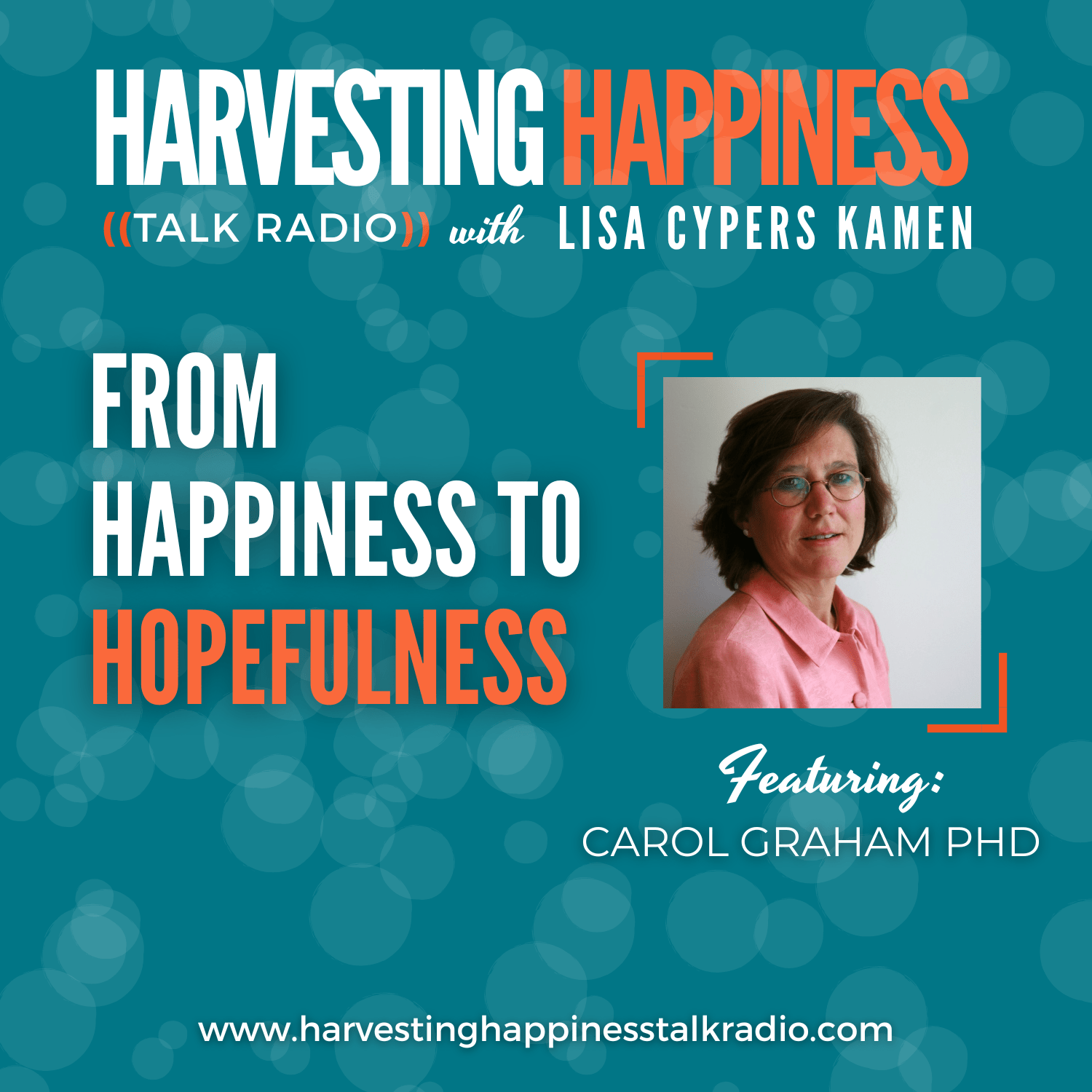
How would you define the American Dream? For some, it means hard work pays off, and for others, it represents a period of time in their lives. Some believe that time has come to a close. What makes different groups perceive things differently? To find out how culture impacts people’s perception of success and what hope has to do with it, Positive Psychology Podcast Host Lisa Cypers Kamen speaks with Leo Pasvolsky Senior Fellow at Brookings, College Park Professor at the University of Maryland, and a Gallup Senior Scientist, Carol Graham. Carol shares the research that supports her book The Power of Hope: How the Science of Well-Being Can Save Us From Despair. Her findings encompass the hopefulness of minority groups, how the political polarization in the US has led to increased despair, and why money doesn’t increase happiness or hopefulness.
Carol Graham PhD — From Happiness to Hopefulness:
- Why does it seem there is more hopelessness on a local and global level? [2:02]
- Carol explains how different groups view the ‘American Dream’ and how it changes their perception of success. [6:08]
- How having a community of empathy affects the well-being of those who have it versus those who don’t. [10:18]
- Why affluence stifles hopefulness. [14:29]
- Carol describes how the political polarization in the US has affected hopefulness. [17:17]
- The science of well-being shows that hope gives humans agency. [21:36]
About Lisa’s guest:
Carol Graham is a Leo Pasvolsky Senior Fellow at Brookings, a College Park Professor at the University of Maryland, and a Gallup Senior Scientist. She served on a National Academy of Sciences panel on well-being metrics in 2012-13, received Pioneer Awards from the Robert Wood Johnson Foundation in 2017 and 2021, and a Lifetime Distinguished Scholar award from the International Society of Quality of Life Studies (2018). She has served as a Vice President at Brookings, as Special Advisor to the Inter-American Development Bank, Visiting Fellow at the World Bank, and consultant to the IMF.
“We are hurting. We've come out of these difficult years and I think there is a lot of repair to be done." - Lisa Cypers Kamen
For more sustainable happiness visit www.harvestinghappiness.com
Return to the Harvesting Happiness Podcast Page















